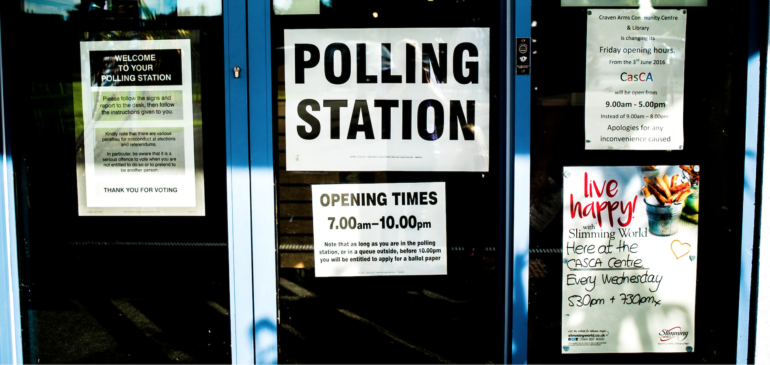
How Jewish Wisdom Can Help Us Survive The 2020 Election
This past Sunday, I drove to Manhattan to pick up my mom so she could spend the week with us in suburban New Jersey. During that drive, it became very clear, very quickly, where this presidential campaign has taken us.
First, Trump supporters shut down one of the bridges leading into the city. Then, I saw businesses board up their windows, should there be violent protests. To top it off, my Jewish mother almost jumped out of a moving car because I said something favorable about a candidate she abhors.
Not exactly a leisurely Sunday drive.
It may be days before we know who wins this presidential election. But one thing is for sure; some people will be devastated with the outcome, while others will be celebrating.
We are a country divided. And we are a people divided.
There is political passion on both sides. There are those who love and respect President Trump; and others who are horrified at the thought of another four years. In the Jewish community, we argue over who is better for Israel; then we argue how much that should even matter. We debate issues from COVID to abortion to immigration to policing to gay rights.
My question isn’t “WHY” we have such polarizing beliefs?
My question is about the “HOW”:
- How do we move forward post-election?
- How can we value our differences? And then see even more value in what unites us?
- Most important. How do I reconcile with my mom?
For the answers, I turned to one of my Rabbis, Rabbi Yitzchok Oratz of Monmouth Torah Links. I thought he was the perfect Rabbi to ask, because:
- Rabbi Yo, as he is affectionately known, hails from the beating hearts of Haredi Orthodoxy: Brooklyn and Lakewood. But he’s even more proud of Marlboro NJ, where’s lived among all kinds of Jews for the past 19 years.
- He’s no–holds–barred when it comes to this topic.
- He knows my mother.
“I think our country, our communities, are far too fractured,” Rabbi Oratz said. “You can support whomever you want, but it is tragic how it turned into the demonization of the other side.”
To be clear: There is nothing wrong with differences in opinion. It’s built into our Jewish DNA.
“The House of Hillel and House of Shammai fought all the time, constantly,” Rabbi Yo reminded me. “The Talmud is all about debates, questions, challenges and arguments, but only with respect and love. They loved each other. They respected each other.”
That’s just the tip of the Talmudic iceberg, says Rabbi Oratz.
- RESPECT: The Talmud says that just as every human being is physically unique, so too are their thoughts and opinions. We were not created to think and feel the same way.
- UNITY THROUGH DIVERSITY: When a large group of Jews gets together there’s a special blessing to be made. It celebrates the diversity of thought in the unified Jewish people — no matter whom they voted for.
- KOL HA’ADAM – We’re told to judge the whole person, the entirety of the human being. Try to understand where the other is coming from. And even if you vehemently disagree — don’t demonize. Our political beliefs are just one small part of who we are.
And remember this: As we work our way through the first part of the Torah, it’s all about brother fighting brother. And that doesn’t go too well, does it?
“When does the Torah get good? When does God find favor in the Jewish people?” asks Rabbi Oratz?
It’s when Joseph makes amends with his brothers. It’s when Moses and Aaron create the dynamic duo of brotherly love and create a nation.
To sum it all up, Rabbi Oratz served one of the best campaign lines of the election season: “One Country. One People. One Family.”
When he said family, I think he was talking about my mom.
If you found this content meaningful and want to help further our mission through our Keter, Makom, and Tikun branches, please consider becoming a Change Maker today.







